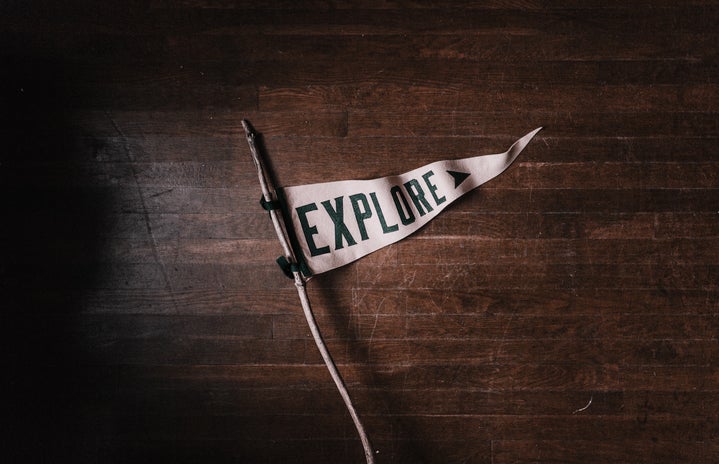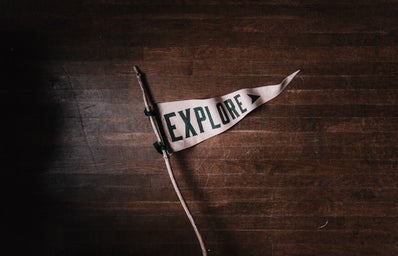I was recently lucky enough to have the opportunity to study abroad in Seville, Spain for four weeks. It was a month full of unique experiences, great food, new friends and many life lessons. There was a lot of preparation that went into this, and I learned a lot before I even arrived in Spain.
Since I got back to the U.S., I’ve had tons of people asking me to tell them about my time in Seville. Of course, it’s easy to talk about the sights I saw or the cities I visited, but it’s harder to explain the full experience. There were small moments that can’t be put into words unless you were there, and the people I met made my experience even better than it would have been without them.
Writing is one way I’ve always been able to explain my thoughts, so, for anybody who has studied abroad, for anybody who will study abroad, and for anybody who is interested in Seville, Spain, I thought I’d write about everything I experienced to get it out of my head and into the world.
My expectations
Thinking back, I don’t really know if I had any specific expectations. Of course, there were the normal ones: would I be too homesick? Would I like my homestay? Would I hate Spain and want to leave as soon as possible?
But as far as expectations go, I thought there would be good food (I was incorrect — the food was better than good, it was amazing), and I thought there would be gorgeous architecture because of the pins I saw on Pinterest, but there was so much more I didn’t think about. I didn’t think about the friends I’d make or the little cafes that I would become a regular at or the shady spot by the river where we sat and did homework and talked, cooled by the breeze coming off the Guadalquivir River.
I suppose when you’re preparing for a trip, you don’t think about the little things but only the big picture.
My experience
Even though it’s only been a little over two months since I arrived in Seville, it feels much longer. The first thing I noticed after stepping out of the airport and getting onto the bus that would drive us to our homestays were some tall trees covered in large purple flowers. They were everywhere in Seville, lining the streets and hanging over the parks. Orange trees were planted in rows along the cobblestone streets, and their citrus smell filled the air whenever I walked to my favorite cafe in the morning to grab some churros.
A lot of the days blur together with the typical schedule of waking up, eating a breakfast of toast with olive oil and tomatoes, drinking a coffee, going to class for a few hours, eating lunch and exploring what the city had to offer. And with that routine, I suddenly felt comfortable in my homestay, in Seville and with my Spanish.
I was able to visit other cities in the province of Andalucía outside of Seville: Córdoba and Granada. The program I traveled with included these in their itinerary, and I spent one day in Córdoba and a weekend in Granada. One of the things I loved about all the cities in Andalucía is the influence of many different cultures on the food, the history and the architecture. Throughout history, Spain has been under Roman control, Muslim control and Christian control, so many of the older buildings include features from these three cultures and others.
There were a lot of different activities I got to participate in, including kayaking on the Guadalquivir River, cooking tapas (small meals to share with friends) and visiting the Real Alcazar, or the Royal Palace. I’m glad there were ways for me to get involved in Seville, and these activities were one of the main ways I got to see the city.
Whenever I went out to eat or spend time with my friends, I always tried to find new places to go, although I did have my regular stops, like El Horno Artesano and Un Gato En Bicicleta, which were two cafes near my house. I drank A LOT of coffee while abroad and ate a ton of churros, too. Like I said, the food was amazing. Even after getting back to the U.S., I’ve made my own tortilla de patatas twice, which uses eggs, onion, potatoes and parsley, and is fairly easy to cook.
One thing I’m very grateful for was that my mom was able to visit for a week. Experiencing all of this with her made it even better, if that’s possible. I’ve been in love with the Spanish culture since I first started learning about it in high school, and I was lucky to have the opportunity to see my mom fall in love with it as well.
Overall, Seville was something that I’ll keep with me forever. There are moments and memories that I will only share with the other people in Seville with me and with myself, and
What to pack
Packing for me is never easy. I always try to pack too much and end up having to sit on my suitcase to close it. I’ve never gone traveling somewhere for over a week or two, so one month abroad presented a packing challenge to me. Luckily, there was an orientation on campus to where everybody going on the trip received a folder that included a packing list. I stuck pretty true to the list I got, but added a few of my own personal touches and didn’t take things I knew I wouldn’t need.
In Spain, I wore a lot of sundresses and flowy shirts because of the heat. Being in Andalucia, the southernmost province of Spain, the temperature started to rise as soon as June began. The highest temperature while I was in Seville was 110 degrees Fahrenheit, but I heard that during July and August it could reach up to 130 degrees. There were actually certain points of the day where it was safer to stay inside your house until the heat died down.
I left some room in my suitcase because my study abroad advisor had told me that there was a good chance that I would buy more clothes while in Spain because they were cheaper there. And, oh boy, did I shop.
In addition to the clothes and toiletries you need for any trip, there are a few things I found to be really important (and essential) to my time abroad.
My journal — which turned into two journals about halfway through my month in Spain — was monumentally important for me. I loved spending about half an hour before bed or during my siesta writing about what I did that day and how I was feeling. Within the entries, I also included tickets from places I went to, as well as some cutouts from the Seville map I was given at the beginning of my program to show where I’d been when I didn’t need a ticket. I didn’t think I’d be writing as much as I did (although I don’t know why I thought that, considering I’m earning a degree in Journalism and have a certificate in writing), but now I’m hoping to carry my daily journaling into my life here in the U.S.
My sketchbook and my camera were equally important to me. I was constantly taking pictures, from large panoramic shots to the small details in the ceramic tile designs that decorated the walls of many buildings. I’m glad I did, because I’m already looking back and sharing the photos with my friends and family. I sketched a bit while I was in Seville, too, and it’s nice to look back at my little doodles of buildings, statues and the river and think about sitting around the city enjoying the sites.
What I learned
I’m going to be super honest here and say that I’m someone who thrives on structure. I live out of my planner, and the one semester that I tried to just use my Google calendar and a Notes app on my laptop quickly made me realize that my planner should never, ever leave my side. Just to get to the folder that I keep all my Her Campus articles in, I have to go through several levels of my Google Drive. I’m used to a very fast-paced life, to say the least.
But in Spain, everything moves much slower. People aren’t always on time, which, for me, means five to ten minutes early. Spaniards take their time to do things, and, while it took me awhile to get used to it, it taught me that I don’t always have to be rushing somewhere or always doing something productive.
Through journaling, I began thinking about how I needed to be more grateful. I’ve always found it easier to look at the negatives, even when the positives are right in front of me. I started making lists of what I should remember to be grateful for each day, such as my family, my friends, the fact that I actually had the opportunity to be in Spain, and the beautiful city I spent my time abroad in. It’s already had a positive impact on my outlook.
My advice for anyone going abroad
I’m not usually someone who takes risks. Like, at all. I’m pretty sure the riskiest thing I’ve ever done is dye my hair red, and the only possible bad consequence of that was that I wouldn’t like it. With that said, I took some risks in Spain. I tried every piece of food that was put in front of me (even though I can be picky). Despite being terrified of heights, I climbed to the top of La Giralda, the tower attached to the Seville Cathedral, which stood a whopping 40 floors high. My fear of heights also could have been a problem while sitting on a plane for over eight hours, but the flight went a lot smoother than I thought it would. I took the risk to speak a second language for an entire month with native speakers, and there were a lot of chances for me to mess up or say something wrong. I guess what I’m trying to say is if you’re abroad, don’t stick to what you normally do and take a few chances, even if they’re small.
I was anxious about what would be in store for me at my homestay. I spent a while debating if I should just stay in the homestay or switch over to live in the residence hall. I knew that it would be better if I completely immersed myself into the Spanish culture, but there were always my nerves that made me want to avoid it. However, I’m glad I didn’t opt out of the homestay program. I don’t think I would have had as much of an amazing experience if I hadn’t decided to stay at my homestay. I improved my Spanish, I experienced Spanish culture without being a tourist, and I made a ton of connections with my host family. If you have the chance to stay with a host family, embrace it no matter how scary it may seem because the experience is worth it.
All photos via the author.


